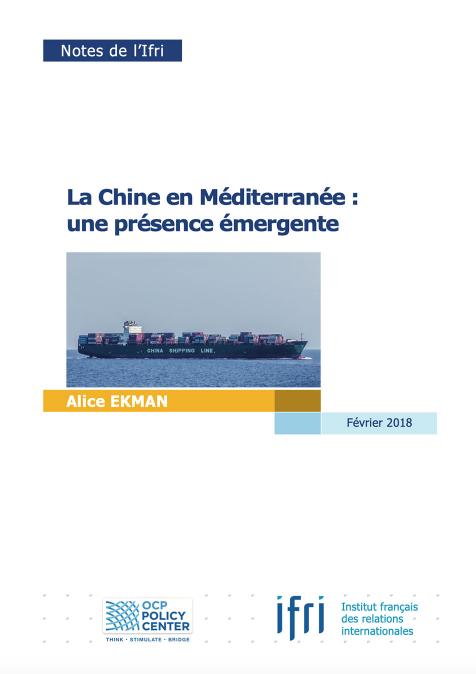Publications /
Opinion
In Japan, the new Emperor Naruhito 徳仁 was inaugurated last week as a successor to his father Emperor Akihito明仁, who decided to abdicate about two years ago in favour of his son for health reasons.
The Japanese people have welcomed the event with mixed feelings, the joy of the enthronement of the young emperor Emperor Naruhito, mixed with despair for missing the warmth and sympathy of Emperor Akihito, whose popularity with the Empress Michiko was characterized by being the couple who offers support and comfort whenever a tragedy occurs.
On January 31, 1995, Akihtto and Michiko visited the western city of Kobe following a huge earthquake. In a break with conservative tradition. They knelt and spoke to survivors.
Sixteen years later, the imperial couple went again to meet victims of the earthquake, tsunami and nuclear accident at Fukushima in 2011. Japan's people turned to their emperor and his consort, who knelt and offered comfort. They were so compassionate that Conservative politicians were astonished at this imperial act they themselves could not perform.
The Semantic of the change
One of the most significant signs of this change is that, by entering May 1st, 2019, Japan will mark the onset of the new era of Reiwa, the new era of Reiwa 令和 (the Era of the Beautiful Harmony). The new Japanese calendar should be adapted to be transcripted as the 1st May, Reiwa 1st year , after the end of the reign of Heisei平成 ( Era of Achieving Peace) on 30th April, the year 31st of Heisei.
The symbolism of this change is crucial to the identity building of the Japanese nation. Since centuries, Japanese trace their history accordingly to the succession of emperors who distinguish their eras by expressions that commensurate with their wishes and their will for their period.
For example, we find the emperors Mutsuhito, who called his era by Meiji Era 明治時代, /Era of Renaissance (1852 –1912), followed the Era of Taisho 大正時代/ Era of democracy (1912-1926), ruled by the emperor Yoshihito. Then in 1926, Emperor Hirohito came to power and crafted his own Era of Showa /Enlightened Harmony (1926-1989).
If the Era of Showa was marked by two phases, a first stage, known as the early Showa period, characterized principally by the rise of militarism in Japan, Japanese aggression in China and in East and Southeast Asia, until the country’s wartime defeat. The second stage, called Showa post-war, was marked by Japan's tough recovery and its rise as a global economic power, but with limited influence, in accordance with the provisions of the Constitution of Japan proposed by General MacArthur, which takes the sanctity character of the emperor, and inhibits Japan from having an army.
Issues deliberated by public opinion following the Emperor's change
Speaking on the occasion of the constitution day on Friday, May 3rd, Prime Minister Shinzo Abe renewed his commitment to revise the Basic Law by 2020, in order to free Japan from the constraints of Article 9 of the constitution which by renounce the right to war, or the use of force as a means of settling international conflicts. He also expressed his will to enable Japan to come to the defense of an ally under threat.
“I made clear at this very forum, two years ago, that I hoped 2020 would be the year this nation sees a newly revised Constitution come into effect. That hope hasn’t changed for me” the Prime minister said.
Speaking two days after the coronation of a new emperor, this reminder of the ambitions of the conservative camp in power to make Japan a "normal" country raises questions about the surprises of the Reiwa era, inaugurated on May 1st.
“In acceding to the throne, I swear that I will reflect deeply on the course followed by His Majesty the emperor emeritus and bear in mind the path trodden by past emperors, and will devote myself to self-improvement” the prime minister added.
This insistence of the Prime Minister Abe to express his wish to change the Constitution seems to contradict largely the meaning of the first speech of the new Emperor Naruhito, whose main task was expressed to protect the peace, the people, and the Constitution.
Although there is no concrete evidence that Japan's imperial family is not supporting the conservative camp to change demands to change the Constitution, Japan's former or current emperor's keenness to remind the public of the apolitical role of the emperor as a symbol of nation, protector of peace and guarantor of the constitution, seems incompatible with the wishes of the Japanese.
It is in this context that the new emperor, Naruhito, deprived of political prerogatives but shrouded in the aura of the sacred, acts as a counterweight: everything indicates that he will remain faithful to the pacifist and humanist postures of his parents.
Recognizing that the Japanese political class has been spared by populism and extremism, it seems that this persistent conservatism is a corset that prevents the country from reinventing itself. That's why, perhaps, the emperor Akihito during the celebration last February the 24th, his 30 years anniversary on the throne, called for Japan to open up and build genuine ties with the world:
¨ I think that our island country...is being asked now to open up further to the outside in a globalised world, to establish its own position with wisdom and to build relations with other countries with sincerity¨ the emperor expressed.




